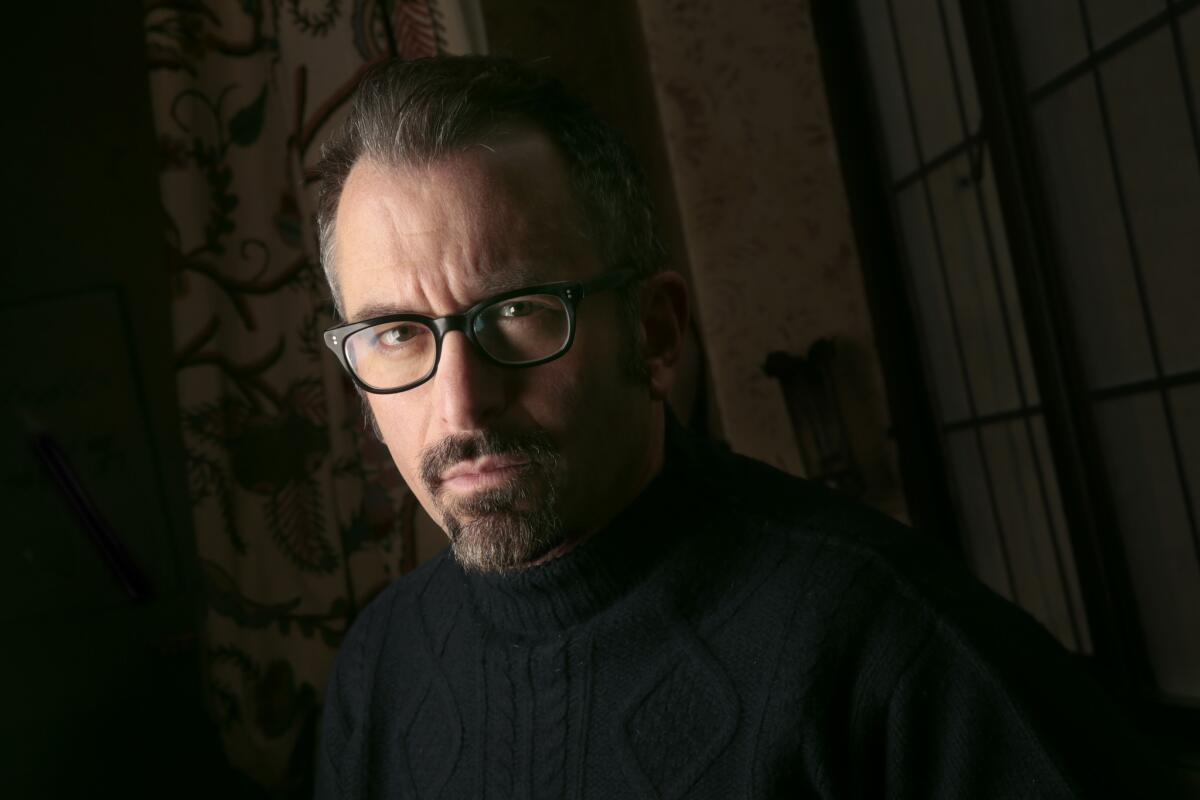‘The Jinx’ finale raises questions about documentary’s timeline

- Share via
Sunday’s finale of the HBO documentary series “The Jinx,” arrived just a day after its subject, Robert Durst, was arrested for the 2000 killing of writer Susan Berman and ended with what appears to be a jaw-dropping quasi-confession. After being confronted with incriminating evidence by director Andrew Jarecki, Durst is overheard on a live microphone as he mumbles to himself: “Killed them all, of course.”
As triumphant as the moment seemed to be, and as much as Saturday’s arrest provided can’t-put-a-price-on-it publicity for HBO, questions are now arising about the timeline as presented in the six-part documentary. When did Jarecki and his producer Marc Smerling share this and other incriminating evidence with police? And why did police wait until Saturday to arrest Durst?
A report in the New York Times said that “more than two years passed after the interview before the filmmakers found the audio.”
But as Buzzfeed’s Kate Aurthur and Time’s James Poniewozik were quick to point out on Twitter, that timing does not make sense, at least as presented in the documentary series, which suggests that Durst finally agreed to a second interview only after he was arrested on a trespassing charge at the Manhattan home of his estranged brother, Douglas. That arrest took place in August 2013.
In an interview Monday on “CBS This Morning,” Jarecki claimed it had been “months ... many months” between the interview and the discovery of the inadvertent bathroom audio -- seemingly contradicting the New York Times account. When asked by host Gayle King about the fortuitous timing of the arrest, Jarecki claimed that police had been given the audio “many months” before.
“The truth is that we hoped Robert Durst would be arrested as soon as possible, and we were sort of amazed ourselves that he hadn’t been arrested for so long,” Jarecki said. “But the authorities were never communicating with us other than in their normal cordial way; they were going through their investigation.”
Jarecki and Smerling canceled a scheduled interview with the Los Angeles Times this morning and provided a statement: “Given that we are likely to be called as witnesses in any case law enforcement may decide to bring against Robert Durst, it is not appropriate for us to comment further on these pending matters.”
Follow @MeredithBlake on Twitter.
More to Read
The complete guide to home viewing
Get Screen Gab for everything about the TV shows and streaming movies everyone’s talking about.
You may occasionally receive promotional content from the Los Angeles Times.






